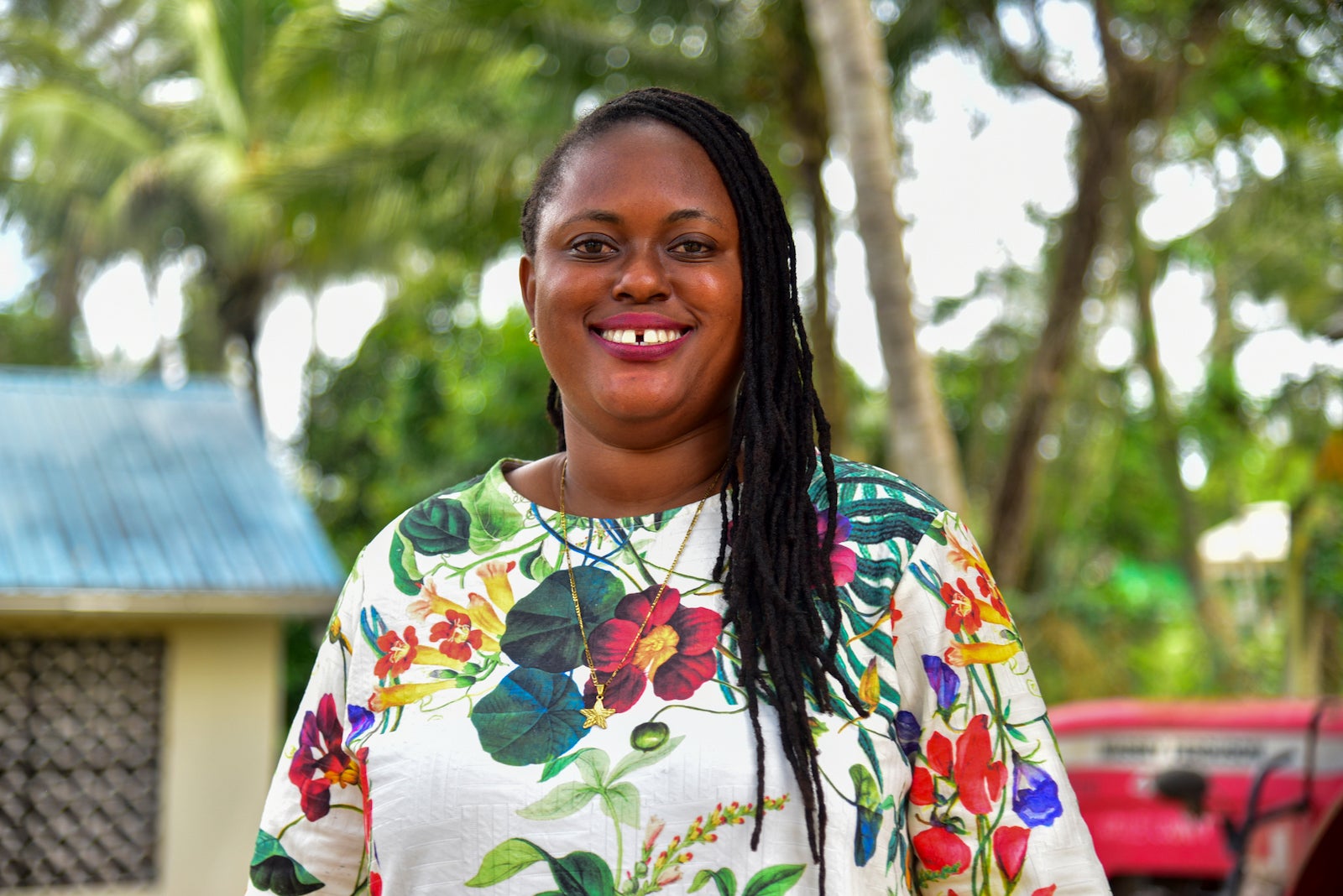Take 5: “There is a growing appreciation of women in leadership within the peace and security sector”
Date:

Winnie Hachi, 38, is the head of programs at Human Rights Agenda (HURIA) which is implementing the Women, Peace and Security project supported by the Embassy of Finland through UN Women Kenya. Winnie works closely with the women of Kwale county on Women in Political Leadership with a specific focus on Preventing Violent Extremism and localization of the Kwale County Action Plan for Women, Peace and Security
How are women affected by violent extremism in the county and what role did your organization play in the first county action plan to prevent and counter violent extremism?
Violent extremism has had profound effects on women in many communities. Many have unfortunately been widowed and left as the sole caregivers for their families in the wake of such senseless acts. Previously, most women relied on their husbands as the primary financial providers for their households. The impact of extremist violence has created difficult circumstances for these families. Without their main breadwinners, they now face financial hardship as well as potential discrimination and harassment. Those directly impacted also often struggle with lasting psychological trauma. In addition, some in their communities have inappropriately profiled and ostracized the women as suspected "sympathizers" due simply to their affiliations. Moving forward, it will be important for all members of society to support those affected with compassion, and ensure opportunities exist for women and families to rebuild their lives despite the burdens left by extremism's harmful actions.
Kwale County was the first county in Kenya to develop a local action plan to prevent and counter violent extremism. The plan was developed as a flagship activity under the HURIA initiative and supported by the United States Agency for International Development (USAID) through the Act Change Transform (Act!) program. This represented a collaborative milestone between HURIA, the Ministry of Interior, Security and National Government Coordination, the Kwale County Government, and civil society organizations. The development of this plan signified not only an accomplishment for HURIA but also for all practitioners working to counter violent extremism in Kwale County, the region, Kenya, and beyond. The partnership between HURIA, county and national governments marked a shift in the government's approach and commitment to working not only with human rights organizations but also countering radicalization and violent extremism across the country.
Kwale County now has a GBV bill after a process spanning more than 6 years. What hope does that give you for ending violence against women in the county?
I look forward to seeing the implementation of the new legislation as it intends to address challenges within the County in the prevention of SGBV. One of the challenges is the lack of rescue centers for survivors of SGBV. The establishment of Gender-Based Violence Recovery Centers, and Safe Houses, to protect the rights of victims of Sexual and Gender-based violence within the County will respond to this challenge. This also means that the County Government will set aside resources for its implementation that have for a long time been a burden to society organizations that are mostly dependent on donor funding.
What other challenges are women facing in peace and security and how is HURIA helping them to tackle the challenges?
For a long time, the responsibility of ensuring community security has primarily fallen on men, while women have been left to care for homes. Even in community platforms discussing peace and security, women are intentionally sidelined. The few women elected to decision-making platforms still struggle to advocate for other women to take on such roles. Part of our strategy has involved advocating for the inclusion of women in traditional structures like Kaya Elder groups. Through a series of capacity building and sensitization efforts, the Kaya elders have embraced and included women representatives in their governance. With support from the Embassy of Finland through the UN Women, we have also conducted significant community sensitization and advocacy around the benefits of including women in peace and security platforms. It is important that men are included in capacity building initiatives for women so they understand and support their contributions. We have also created platforms to showcase and amplify the gains women have made in peace and security.
What actions should other players take toward deepening the integration of women in the peace and security sector?
We need to create opportunities for skills transfer and mentorship amongst women already in these spaces and young women. There should also be continuous advocacy, dialogue, and emphasis on gender mainstreaming in peace and security platforms. Continuous capacity building and technical support will encourage women’s participation in the peace and security sector. Partners need to address barriers that prevent women’s participation in Peace and Security processes and create platforms and opportunities for women in the sector to showcase their gains and share learnings with other women in different counties as a motivation strategy.
What difference have you seen for women in leadership in the peace and security sector in Kwale county?
There is a growing appreciation of women in leadership within the peace and security sector, community members are slowly embracing the concept of including women in peace and security decision-making levels. We now have a female County Peace Chair and 2 Sub County Peace Chairpersons which is a milestone in women in leadership within the peace and security structures.